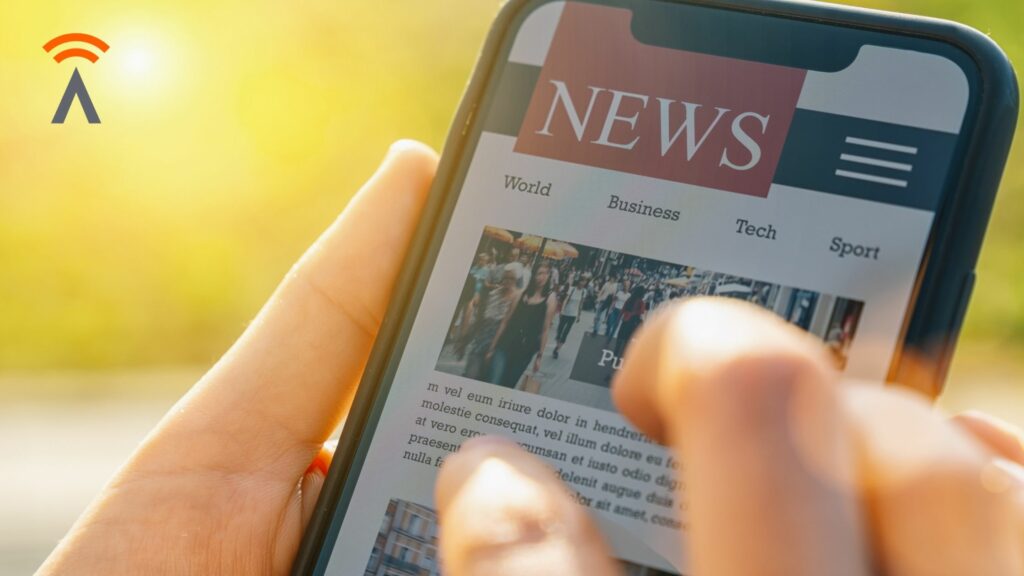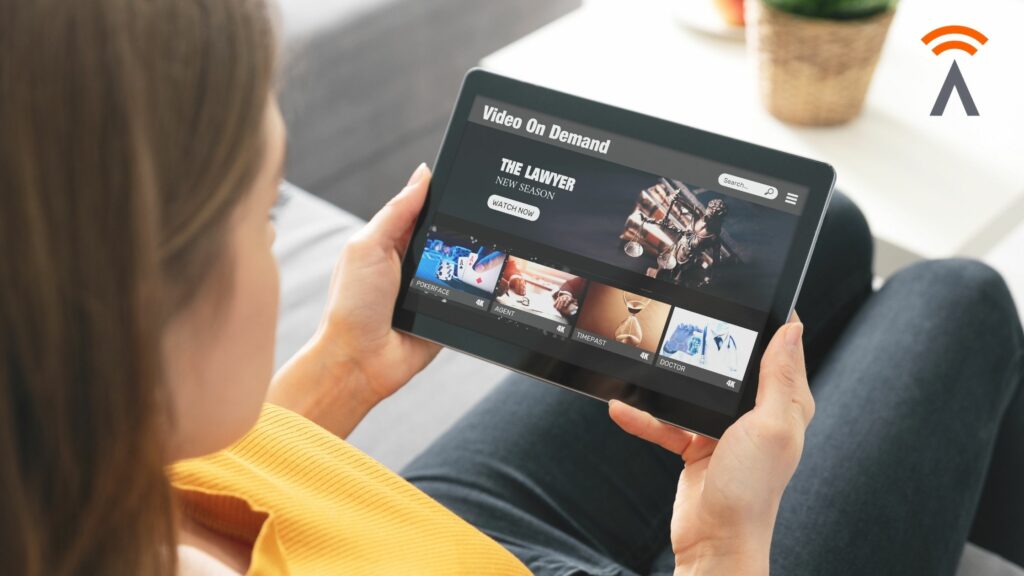
How Much Internet Speed Do You Need?
We often get asked the question, “What internet speed do you need?”. It’s difficult to know the answer and it’s different for everyone. Start with asking yourself the following:
- Do I own many devices?
- Do I work remotely?
- Do I stream videos?
- Do I use video conferencing?
- Do I do any online gaming?
The more you answer “yes” to the questions above, the more you will benefit from higher speeds. Let’s take a look at how speeds can affect your experience on the internet!
Internet Pipes
Broadband internet works just like any other utility. You can imagine us like the water company; We install a big pipe to serve your street, and smaller pipes to bring it inside your home. The bigger the pipe, the faster you can fill up on data! We measure your pipe in mbps (megabits per second), and there are different tiers from 15-200 mbps available. Having higher speeds will load web pages faster, files will download quicker, and online streaming will be of higher quality without any buffering.
The good thing about the internet is there’s no charge for the data, but only just the pipe. In other words, there are no data caps and charges for going over. Our data is truly unlimited! So the real question for you is how big of a pipe do you need?

Basic Browsing
If the only thing you do is check your email or browse websites like Facebook, you may not need a lot of speed. Most websites are optimized for speed and could load even on a slow connection. However, you may need a faster connection if you want to stream movies on Netflix or watch videos on Youtube.
Speed vs. Stability
Speed is different than stability. If a business has a telephone service over IP (VOIP), they will notice any instability in the connection. Even though the amount of data being sent is small, they will notice very quickly. They don’t need a bigger pipe, but they need a better quality connection. With online gaming, timing can be critical to winning the match. Any slight delay in the signal can determine whose shot hits the target first. Gamers typically want a low latency connection, not just faster speeds. Let’s dive deeper into what that means.
Phone Calls & Gaming: Latency
Latency, also called “ping time”, is the time it takes to send a data packet all the way from one end of the connection to the other and back. Typically on cable or wireless internet, this round trip only takes around 20-30 milliseconds! This delay is almost imperceptible to humans. Lower is always better. By contrast, a satellite internet connection will typically take around 400-600 milliseconds, just because of physics – it takes time to send that signal to outer space and back! However, this half-second delay can be very frustrating during video or phone calls, and it can make online gaming difficult. Lets learn more about why more bandwidth is better for these type of scenarios!

Video Streaming & Conferencing: More Bandwidth = Better
Video streaming is not sensitive to latency. In fact, nearly all streaming services will “buffer”, which means they pre-load the video for the next couple of minutes in case the connection slows down. Instead, streaming is all about that data pipe – higher speeds mean higher quality video streams, and more devices that can stream at the same time.
If you’re unsure how much you need, contact our office and we’ll be glad to help you choose the right plan for your devices!
Do I Need A Gig?
Everyone’s talking about gigabit speeds these days. A gigabit is 1,000 mbps, which is enough to stream 25+ devices in 4K. Downloads are very fast indeed and they often finish in a few seconds, but do you need it?
Businesses can benefit from gigabit speeds if they have hundreds of employees, or offer free wifi to lots of customers such as hotels, stadiums, libraries etc. Individuals who regularly download very large files or need to upload video footage to remote servers can benefit from gigabit speeds. However, for the average consumer, you simply won’t use it very often. In fact, some ISPs count on that fact. They often oversell the same gigabit connection to entire neighborhoods of homes because it goes unused 95% of the time. If you fall under this category, then you probably do not need a gig.
Confusion: Cell Data vs Broadband Speeds
Let’s take a moment to clear up some confusion when comparing cell phone data plans to broadband internet. You will see pricing on cell plans that mention 5 gigabytes up to 25 gigabytes and more. This is not a speed measurement, but the total data you can consume.
Going back to the pipe example, the cell plan gives you a single bucket of data. We’re giving you a pipe of a certain size. Yes, the bucket is much bigger around than the pipe, but it will run out relatively quickly whereas the pipe just keeps flowing. Here are some actual numbers, for comparison:
- 5 Gigabytes/month of cell data – this would download in 30 minutes on a 25 mbps connection.
- 25 Gigabytes/month of cell data – this would download in 17 minutes on a 200 mbps connection.
In fact, you could download over 65,000 gigabytes of data in a month on a 200 mbps connection! So, why rely on a few gigabytes of cell data when you could have truly unlimited data from a broadband connection?

What If It’s Too Slow?
We can be sure of one thing; if your internet speed is too slow, it’s going to impact your online experience. Videos will buffer, phone calls may drop, and large webpages may take too long to load. Fortunately, increasing your speed is as easy as giving us a call! We have a lot of experience helping customers determine the best speed package for their situation. We won’t push you into an expensive package you don’t need, but we will make sure you have enough bandwidth to have an overall smooth online experience. For more information on our internet packages, click here to learn more!
